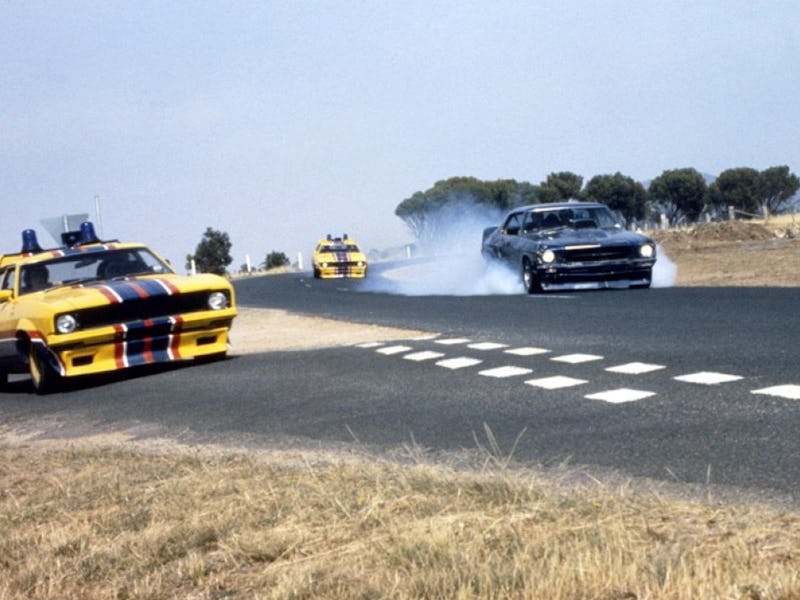With Furiosa Out Soon, Mad Max is a Reminder That Franchises Can Start Small
George Miller’s first movie was cheap and sleazy. It was still good enough to spawn a franchise.

Modern moviemaking is intrinsically linked to high stakes. That’s true not just when you think about the various beams and monsters attacking our cities, but also when you consider how much pressure is put on every new franchise to succeed the second it enters the world. If a studio puts a large amount of money behind a new movie in the hopes it will launch a series of sequels, they expect that bet to pay off immediately. They want their franchise starters to come out of the gate swinging, and if they don’t, they rarely get a second chance.
That reality is part of what makes a movie like Mad Max so unusual. George Miller’s first attempt at what would become his signature franchise is arguably the least successful, and also the film least like the others in the franchise. What the movie suggested, though, was that the mind behind it had the kind of vision that would ultimately lead him to make movies like The Road Warrior and Fury Road, franchise iterations that improve on what the first installment could only hint at.
The first Mad Max is not without its merits, but it’s evidently the work of someone trying things out. The movie is set in a noticeably distinct world from the other installments in the Maxverse, one that still has paved roads and indoor spaces that aren’t caves. The world hasn’t collapsed yet, but it’s on its way there, and Max (Mel Gibson) is one of the few people trying to halt the slide. Miller was working within his relatively limited budget to deliver something that evoked dystopia, years before he could operate at the scale that would allow him to achieve his vision.
Mad Max is also not as action-forward as subsequent installments. It has its thrilling chases and beatdowns, but it’s a movie made without the resources of Fury Road or even The Road Warrior, and it shows. The film’s rough edges are part of its charm, though, and it wasn’t just Miller’s filmmaking acumen that made it feel so distinct. Its dystopian future in which oil has been depleted still feels relevant all these years later (which is why these movies keep getting made), and its story of revenge isn’t hard to comprehend. Max’s story of losing his family is also the only crucial bit of lore the franchise has, which is one of the reasons it’s constantly able to pivot.
What Mad Max feels like, then, is the kind of tryout film that few major franchises still get the chance to make. Much like Sam Raimi’s Evil Dead, released just a few years later, it’s a movie that functions as a proof of concept, which frees its sequel to be a soft reboot of the entire franchise. The Road Warrior alludes to the first Mad Max, and the traumatic events Max went through. For the most part, though, it feels like something else entirely. The world has decayed beyond recognition, and things are just generally wackier than they were allowed to be in the first installment.
Mad Max was only Mel Gibson’s second film, but it began his transition to stardom.
Miller got to make another Mad Max because it enjoyed box-office success and didn’t cost much to make. It proved Miller had the kind of delirious vision worth exploring, and helped the franchise become what it is now. Of course, Mad Max’s financing came from sources outside of the Hollywood studio system, but there’s no reason Hollywood studios couldn’t give new franchises a small investment in the hopes one of them will ultimately become an Oscar-winning juggernaut.
Filmmaking is and always will be a game of chance. Those who put money behind a project do it because they believe in something, whether it’s an idea, a franchise, or the person behind or in front of the camera. What Mad Max demonstrated is that launching a successful franchise isn’t as simple as taking a big piece of intellectual property and putting all your resources behind it. Sometimes, it pays to take the long view. Mad Max didn’t seem like a franchise launcher in 1979. Now, 45 years later, everyone who made a small bet on it has reaped enormous rewards. It makes you wonder why Hollywood insists on only betting big.